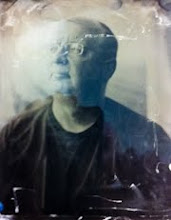Carr goes on to write that according to a number of experts, reading web pages on the screen overloads working memory and decreases cognitive function because we are constantly interrupting our reading to make split second decisions whether to follow the various links that are offered on the screen. A number of cognitive scientists quoted in the book agree that the rapidly shifting attention the internet demands improves our multitasking skills, but "the more you multitask, the less deliberative you become; the less able to think and reason out a problem" according to Jordan Grafman at the NINDS. According to David Meyer from the University of Michigan, a leading expert on multitasking "except in rare circumstances, you can train until you're blue in the face and you'd never be as good as if you just focused on one thing at a time", adding that multitasking "is learning to be skillful at a superficial level". Carr concludes that Seneca summed it up best in his Letters of a Stoic, remarking that "to be everywhere is to be nowhere".
The more reading I do, the more I realize that if I want to retain (or regain) the ability to read and think deeply, I will have to balance book reading and research (and similar off-line activities) with on-line activities (and choose those on-line activities more carefully). In terms of my continuing art practice, I think that careful, thoughtful consideration of art books will be a more productive and enriching use of my time compared to looking at lots of images on internet sites like Flickr. The number of images on Flickr is staggering, and there are many links and side paths beckoning constantly. I hadn't read this section of Carr's book before I decided to leave Flickr, but I can see that I had an intuitive understanding of why continuing with Flickr would be counter-productive to my desire to continually improve as an artist.

1 comment:
Awesome post my friend.
Post a Comment